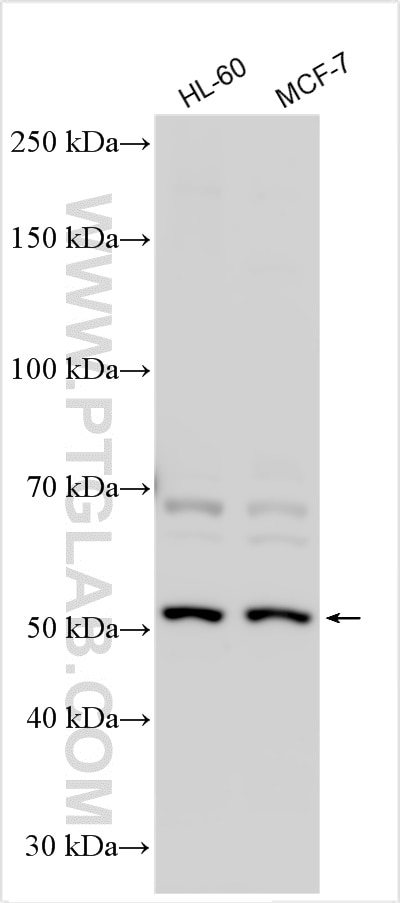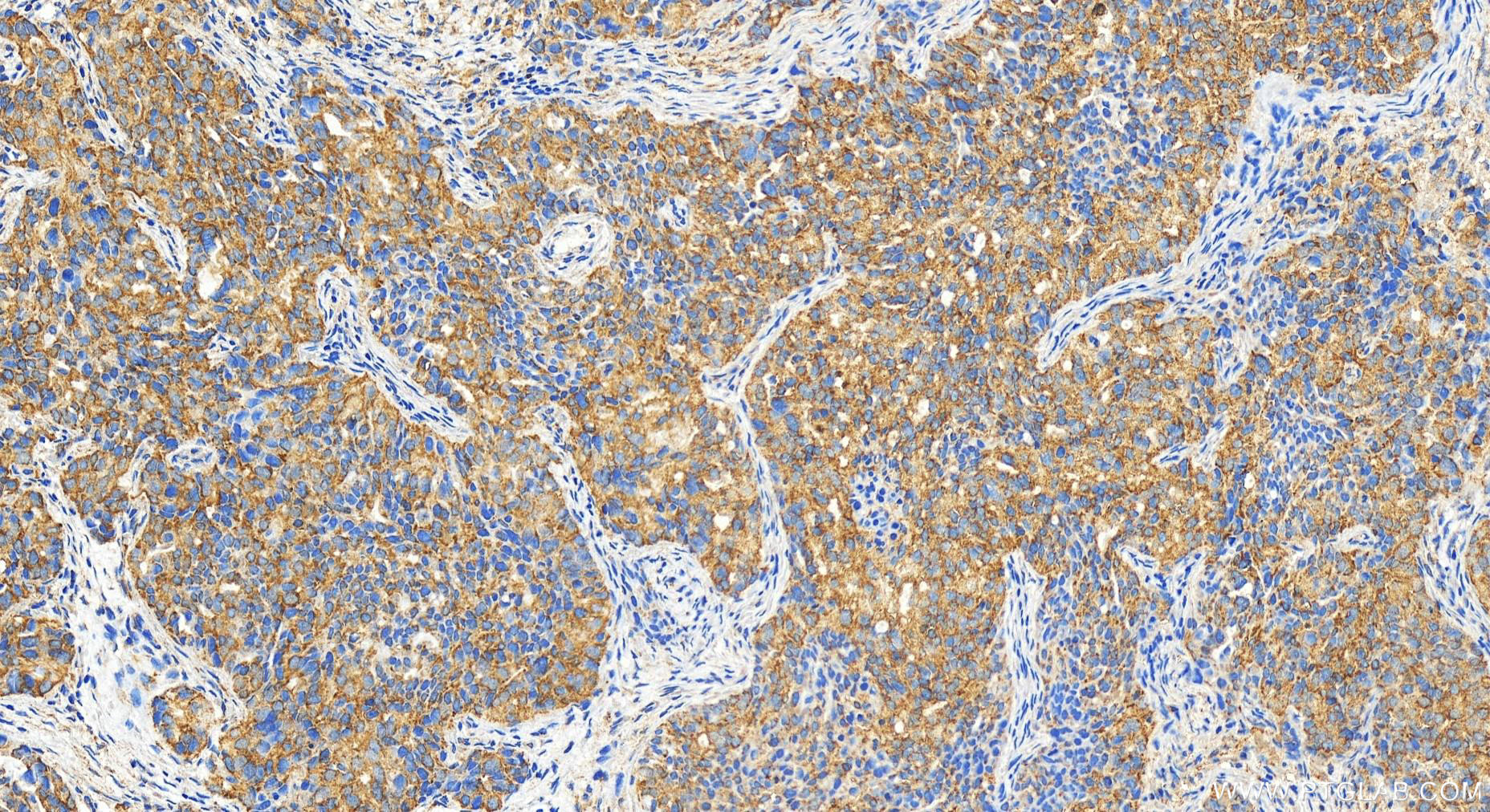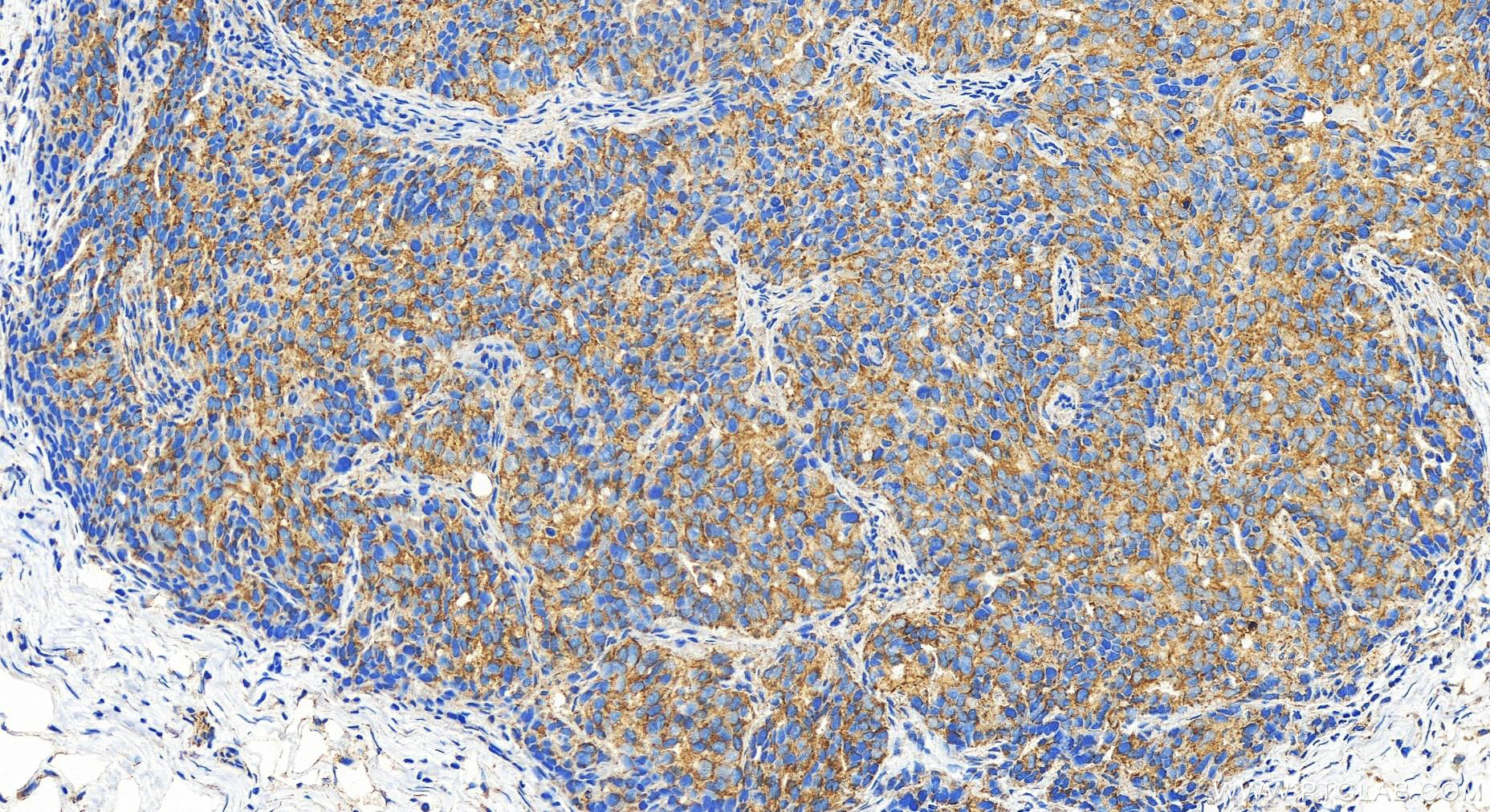SLC43A3 Polyklonaler Antikörper
SLC43A3 Polyklonal Antikörper für WB, IHC, ELISA
Wirt / Isotyp
Kaninchen / IgG
Getestete Reaktivität
human
Anwendung
WB, IHC, ELISA
Konjugation
Unkonjugiert
Kat-Nr. : 20131-1-AP
Synonyme
Geprüfte Anwendungen
| Erfolgreiche Detektion in WB | HL-60-Zellen, MCF-7-Zellen |
| Erfolgreiche Detektion in IHC | human ovary cancer tissue Hinweis: Antigendemaskierung mit TE-Puffer pH 9,0 empfohlen. (*) Wahlweise kann die Antigendemaskierung auch mit Citratpuffer pH 6,0 erfolgen. |
Empfohlene Verdünnung
| Anwendung | Verdünnung |
|---|---|
| Western Blot (WB) | WB : 1:500-1:2000 |
| Immunhistochemie (IHC) | IHC : 1:50-1:500 |
| It is recommended that this reagent should be titrated in each testing system to obtain optimal results. | |
| Sample-dependent, check data in validation data gallery | |
Produktinformation
20131-1-AP bindet in WB, IHC, ELISA SLC43A3 und zeigt Reaktivität mit human
| Getestete Reaktivität | human |
| Wirt / Isotyp | Kaninchen / IgG |
| Klonalität | Polyklonal |
| Typ | Antikörper |
| Immunogen | SLC43A3 fusion protein Ag13999 |
| Vollständiger Name | solute carrier family 43, member 3 |
| Berechnetes Molekulargewicht | 491 aa, 55 kDa |
| Beobachtetes Molekulargewicht | 55 kDa |
| GenBank-Zugangsnummer | BC003163 |
| Gene symbol | SLC43A3 |
| Gene ID (NCBI) | 29015 |
| Konjugation | Unkonjugiert |
| Form | Liquid |
| Reinigungsmethode | Antigen-Affinitätsreinigung |
| Lagerungspuffer | PBS with 0.02% sodium azide and 50% glycerol |
| Lagerungsbedingungen | Bei -20°C lagern. Nach dem Versand ein Jahr lang stabil Aliquotieren ist bei -20oC Lagerung nicht notwendig. 20ul Größen enthalten 0,1% BSA. |
Hintergrundinformationen
Sodium-independent purine-selective nucleobase transporter(SLC43A3), also called as equilibrative nucleobase transporter 1(ENBT1), is a nucleobase transporter involved in purine salvage pathways in mammals, which mediates the equilibrative transport of extracellular purine nucleobases such as adenine, guanine and hypoxanthine.(PubMed:26455426, PubMed:32339528) It has been found that it may regulate the transport of fatty acids (FA) in fat cells, as a positive regulator of FA efflux and as a negative regulator of FA uptake.(PMID: 32217606)
Protokolle
| PRODUKTSPEZIFISCHE PROTOKOLLE | |
|---|---|
| WB protocol for SLC43A3 antibody 20131-1-AP | Protokoll herunterladen |
| IHC protocol for SLC43A3 antibody 20131-1-AP | Protokoll herunterladenl |
| STANDARD-PROTOKOLLE | |
|---|---|
| Klicken Sie hier, um unsere Standardprotokolle anzuzeigen |




